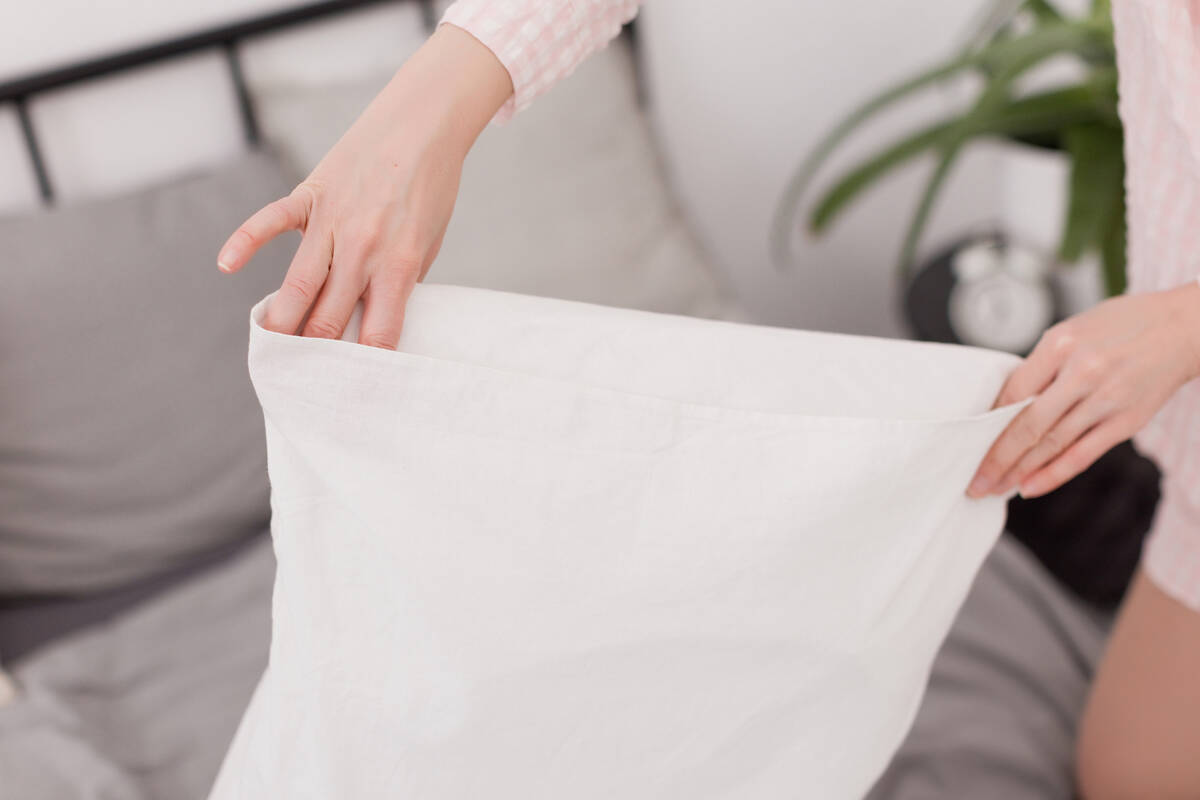How often should you change your pillowcase?
How often should you change your pillowcase? Well, the answer might not be what you wanted to hear.
While the frequency with which to wash your sheets is somewhat common knowledge, most people should swap their pillowcases even more than that.
There are plenty of good reasons to do so, but above all, it’s what’s best for your skin, according to Dr. Marisa Garshick, a board-certified dermatologist at New York City’s MDCS Dermatology.
“You should change pillowcases often because they accumulate oil, sweat, dead skin cells, bacteria and product residue,” Garshick explains. “Over time, these can contribute to skin irritation.”
‘Breeding ground’
Some of the gross signs you’re not changing your pillowcase enough include acne and breakouts due to the bacteria, oil and dirt transfer. You may also notice skin irritation as well as the worsening of conditions like eczema or rosacea, Garshick says. “Also, mold or allergies or respiratory issues from dust mites, which thrive in bedding.”
Speaking of what “thrives” in unwashed bedding, Kristin Gunn, a celebrity aesthetician and owner of Halcyon Skincare and Beaux Medspa in Austin, Texas, says that, since pillowcases accumulate so much bacteria and residue, they tend to create a ”breeding ground” for even more unwanted side effects.
“This can lead to everything from breakouts to allergies to fungal infections,” Gunn explains. “In addition, dust mites and allergens accumulate, especially in the hair, and this can be transferred into the pillowcase which can trigger skin reactions, congestion and more.”
Translation? If your skin or allergies are acting up and you can’t figure out why, you might want to rethink your pillowcase.
How often to change?
Garhick suggests changing your pillowcase at least once a week — or anytime it’s visibly dirty. “If you sweat a lot or have allergies, more frequent changes can help prevent skin irritation and bacterial buildup,” she adds.
Gunn recommends her clients change their pillowcases at least two to three times a week, though that depends on specific skin care concerns: “For those with sensitive skin, I’d recommend changing it three to four times a week,” she says.
If you’re not seeing any issues or don’t have sensitive skin, once a week is probably fine (especially if you do a thorough face cleansing before bedtime).
If acne is a concern
Another common skin care concern when it comes to pillowcases is acne.
If you have acne-prone skin, changing your pillowcase every two to three days is ideal, Garshick says, especially since doing so can help alleviate inflamed skin: “A fresh pillowcase can reduce the buildup of acne-causing bacteria, dirt and oil, which can clog pores and trigger breakouts,” she explains.
If you live in a hot or humid climate, Gunn recommends switching out your pillowcase daily: “This would be ideal to keep bacteria out, especially if you sweat a lot,” she says.
If that’s not feasible for you, aiming for every two to three days can still help prevent bacterial growth and irritation that relates to moisture buildup, Garshick adds.
Did you know that your pillowcase fabric can make a huge difference for your skin? Well, now you do.
“If acne prevention is a concern, antimicrobial pillowcases can be considered, while for those with eczema, cotton can be used as it is gentle on the skin,” Garshick says. “Bamboo pillowcases are another excellent option because they are naturally antimicrobial and breathable while helping to absorb moisture.”
How about your pillow?
As for how often to switch out the actual pillow inside of the pillowcase? “Pillows should generally be replaced every one to two years to prevent buildup of dust, bacteria and allergens,” Garshick says.
They also collect bacteria overtime, Gunn adds: “So once you feel that it’s flat or uncomfortable, it may be time to get a new one.”

















